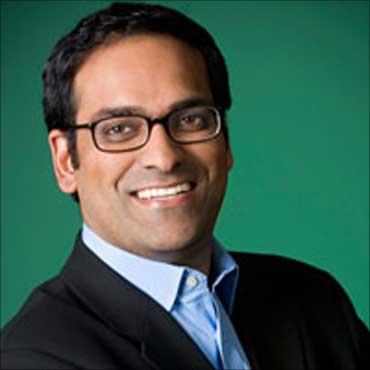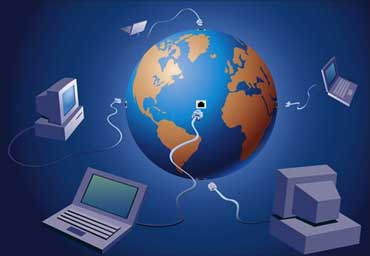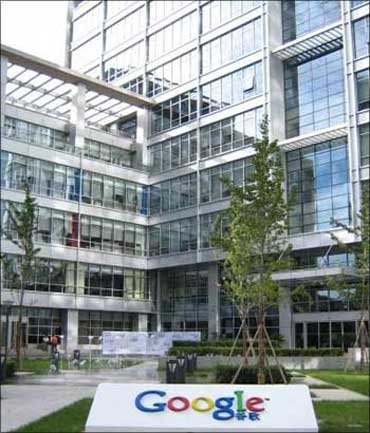
Shailesh Rao heads the India arm of a company that is synonymous with the growth of the Internet - Google.
The question, however, is what the $23 billion Google can do in India. Can it make money from its popularity in a country where Internet penetration itself is 10 per cent that of TV or about one-fifth that of print? For decades to come, India will remain a mass media market.
Newspapers alone reach about 340-odd million people. TV reaches a gargantuan 670 million people, and the numbers are still growing. The impact of the Internet on media consumption hasn't been felt as acutely in this market simply because it opened up to media only after 1992.
Unlike the US or Europe, which were fully satiated mass media markets when the Web happened in 1995, India has just begun discovering the joys of private television, radio and lots of newspapers. The Internet is still on the periphery of media consumption. Business Standard spoke to Rao on the future of the Internet in India. Excerpts:
The Internet has a depth, width and a textural quality that is different from other media. Yet, it operates much like mass media - it needs audiences and advertisers. Is the fuss over the Internet justified?
It is justified. What the Net represents is a standards-based platform for communication, collaboration, commercial transaction and content generation. So, it is a multi-dimensional media. It is a grand experiment with the power and implications of a standards-based open network.
Most other media or consumer networks are proprietary. The Net is truly global and open. It has reduced the cost at which the content is generated and has increased the breadth of the content generated.
For example, every minute, 24 hours of content is being loaded onto YouTube. The Net has democratised access, and created a world based on merit and performance.
...

If aggregation is the way to make money on the Net (a la Google), what happens to the original content? Eventually, even the aggregators make money only on popular content produced by professionals. The long tail doesn't really deliver value...
The long tail is by definition a tail. It is a collection of niche properties. Tail content providers cannot have a bigger audience than the head providers. In the early nineties, India had just Doordarshan; with liberalisation came more channels.
Think of the Net as the logical next stage of that phenomenon - it reduces cost of entry and production. The fact is that people have more choice.
Search counter-acts what you are saying too, because you can find what is relevant. If a website has no value, it won't show up.
But the websites on the top of search results may be there because of Search Engine Optimisation (SEO)...
I would like to think that all the signals in our search engine algorithm are designed to find the most relevant sites. Most of our engineering is focused on search.
Ultimately, we wouldn't be successful if we were not relevant. Nothing compels people to come back to Google.
...

If broadband and Internet penetration numbers increase, what could change and what services would you be most bullish about?
From the perspective of an individual or a consumer, the Internet has the power to improve lives by bringing information and knowledge and, therefore, it gives power to people.
So, people who are on the margins of society can access services that they did not have access to before - for example, banking or health care.
On the business side, the biggest implication is for small businesses. It gives them a platform to extend their footprint, make more informed decisions, market their business, lower transaction costs, etc.
Most investments in building broadband pipes in India were made more than a decade ago. Yet, penetration lags. What holds it back?
Many years ago, I wrote a paper on the impact of deregulation. Every market in the US that was deregulated has seen proliferation of services - airlines, trucking, telecom and energy.
I believe in the power of competitive markets and Net access is not one of them. So, a series of policy decisions need to be made before multiple players compete to offer Internet access. For instance, in India, there is no unbundling of the local loop.
You can see it in wireless broadband where two players are already competing to offer access (Tata and Reliance).
Some of this is also linked to the services on offer. For example, when we launched YouTube here a couple of years ago, everybody said broadband was so bad, etc etc. Today, YouTube is among the top five websites in India.
...

If you scan the mobile, Internet and media space in India, where do you see the biggest opportunities for Google, and how will this translate into products?
We think of the Web as a place to offer products to the consumers and to the advertisers.
On the consumer side, we are very bullish about the mobile. The implementation of a full Web-capacity browser on a mobile phone (like Google's Android) will change the market. Then there is YouTube and the partnerships we have with content providers, for example, IPL, Rajshri Films and Zoom.
On the advertisers front, we are helping them learn how to use the Web better for brand advertising and also to use search advertising for lead generation. You could launch a product and build awareness on Orkut, YouTube, etc.
Words, which allows advertisers to place ads against search results best suited to their business, is particularly suited to small businesses because they have small budgets for creative and media buying.
Plus they want a quick sense of the return on investment. In India, it is particularly significant because the small business segment is very underserved. Most other markets had decades of yellow pages, which helped small businesses grow.
So far, we were selling AdWords on a self-service model. Now we have, besides the self-serve model, an assisted form of AdWords for small businesses.
Our experience with telesales, to call and evangelise the proposition of AdWords, has been great. We have even done roadshows on how to use it in places like Chandigarh. We are closing enough business on this to cover the cost of assistance.
Do you see any changes in usage patterns, from consumers or advertisers?
Three years ago, most customers for our search-based business were online firms. Now we see more broad-based acceptance. There are consumer electronics companies, telcos, airlines, financial services firms, educational institutions, etc.
We now engage with CMOs and CEOs, instead of sales managers. We are seeing clients spending anywhere from Rs 5 crore (Rs 50 million) to Rs 25 crore (Rs 250 million) on digital services.